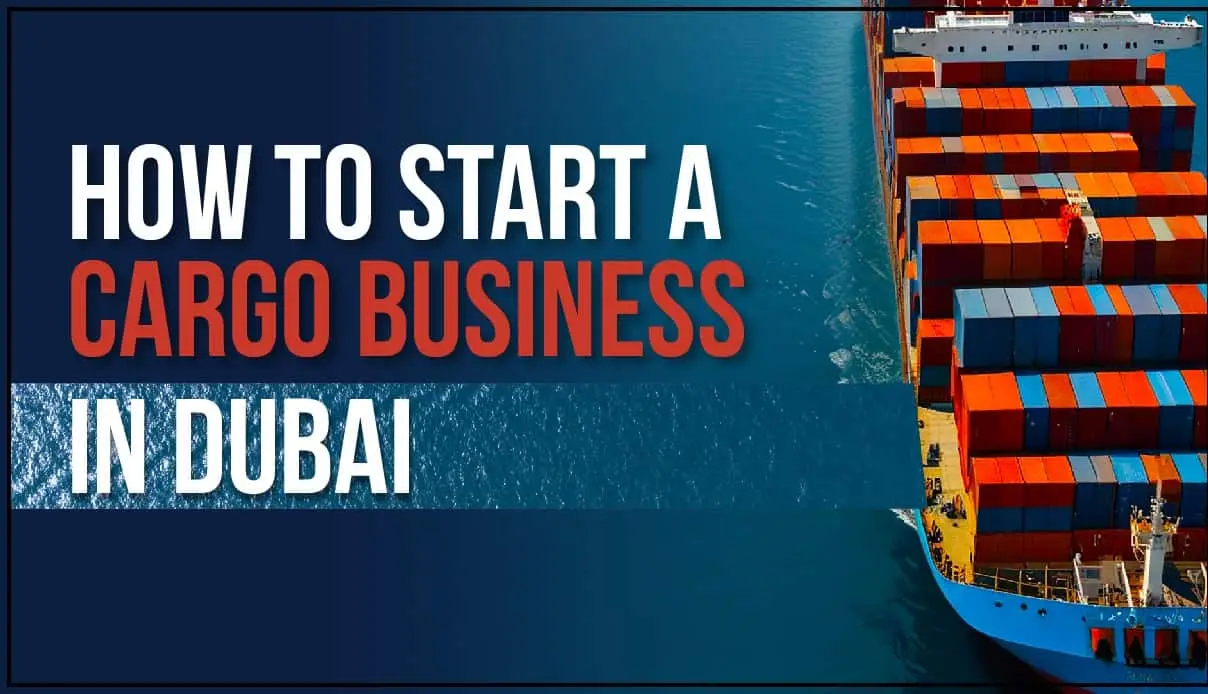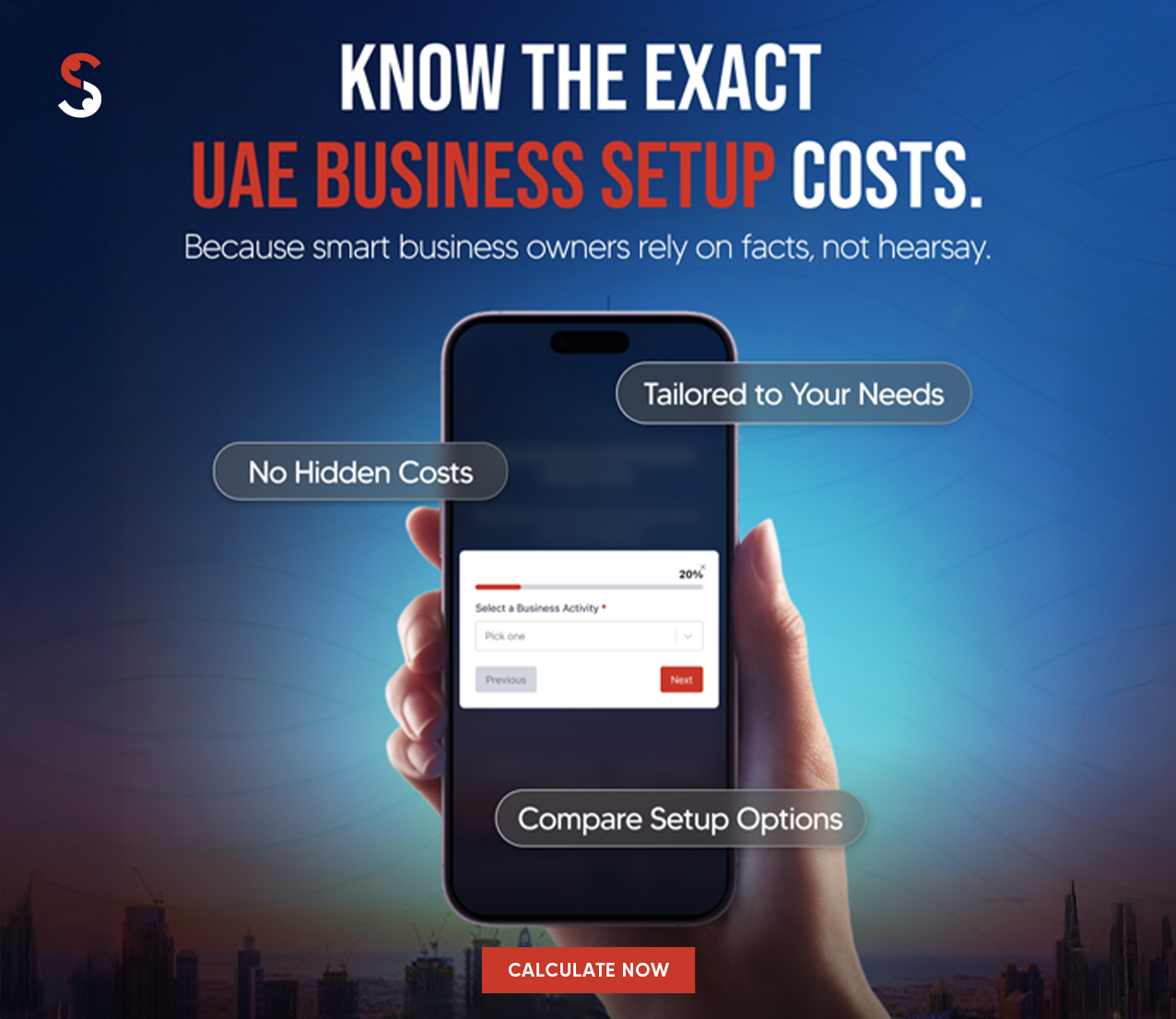Dubai sits right in the middle of Europe, Asia, and Africa, making it the perfect spot for moving goods around the world. This amazing city has become a major player in global trade, with its busy ports, airports, and business zones handling millions of tons of cargo every year. Dubai has worked hard to connect different parts of the world, creating the perfect environment for businesses that want to ship products internationally.
The cargo and shipping business is huge for the UAE’s economy as it brings in lots of money and creates thousands of jobs. Dubai’s Jebel Ali Port is one of the busiest container ports in the world, and Dubai Airport handles massive amounts of cargo every day. This industry has helped the UAE become less dependent on oil money and build a more diverse economy that focuses on smart business solutions and logistics.
The UAE’s logistics market was valued at USD 54.5 billion in 2024 and is expected to reach almost USD 95 billion by 2033. That’s why more and more business owners are looking at Dubai as the perfect place to start their cargo companies.
In this article, we explained how to start a cargo business in Dubai, a global logistics hub offering immense opportunities due to its strategic location between Europe, Asia, and Africa, world-class infrastructure like Jebel Ali Port and Dubai Airport, and business-friendly policies including 100% foreign ownership.
Why Start a Cargo Business in Dubai?
Dubai’s logistics sector is one of the strongest in the world, and starting a cargo business here comes with unique advantages that few other cities can match.
- Perfect Location for Global Trade: Dubai sits at the perfect spot on the world map, right between East and West. This means you can easily ship goods to Asia, Europe, Africa, and beyond without long detours. Your cargo business can reach markets that other locations simply can’t access as easily or cheaply.
- World-Class Infrastructure: Dubai doesn’t mess around when it comes to facilities. The city has some of the best ports, airports, and roads in the world. Jebel Ali Port can handle the biggest ships, Dubai Airport moves cargo 24/7, and the road networks connect everything smoothly.
- Access to Massive Markets: When you base your cargo business in Dubai, you’re not just serving one country; you’re serving entire regions. Within a few hours of flight time, you can reach markets in India, China, Europe, and Africa. That’s billions of potential customers for the businesses you’ll be helping to ship their products.
- Established Business Networks: Dubai already has a huge community of traders, manufacturers, and logistics companies. This means you’ll find plenty of potential partners, customers, and suppliers all in one place.
- Specialised Free Zones: Free zones like JAFZA, IFZA, Dubai South, and DAFZA offer warehouses, storage facilities, and customs support specifically designed for logistics companies. These zones also provide foreign investors with full ownership and easy setup options.
- Lower Insurance Costs: Because Dubai has excellent security, stable politics, and reliable infrastructure, shipping insurance costs are often lower here compared to other regions. This saving gets passed on to your customers.
What are the Types of Cargo Business Models You Can Start in Dubai?
When starting a cargo company in Dubai, you can choose from different business models depending on your budget, target market, and services you want to offer. The most common options include:
1. Freight Forwarding Services
Handling the movement of goods across air, sea, or land. Freight forwarders coordinate shipping, documentation, and customs clearance, making them a vital link between businesses and transport providers.
2. Courier & Express Delivery
Focused on smaller shipments, parcels, and time-sensitive goods. With the rise of e-commerce, this model has seen rapid growth and offers high-volume opportunities.
3. Warehousing & Storage Solutions
Offering secure storage, inventory management, and distribution services. Many businesses prefer outsourcing warehousing to specialised providers instead of investing in their own facilities.
4. Customs Clearance & Brokerage
Helping clients manage the complex customs documentation and approvals required to move goods in and out of the UAE. This model requires expertise in local regulations and direct registration with Dubai Customs.
5. Specialised Cargo Handling
Focusing on niche markets such as perishables, pharmaceuticals, hazardous materials, or heavy machinery. These require specific licenses, safety measures, and facilities but can be highly profitable due to less competition.
6. Integrated Logistics Provider (3PL/4PL)
Offering end-to-end solutions that combine freight forwarding, warehousing, customs clearance, and last-mile delivery. This model suits larger companies aiming to manage the entire supply chain for their clients.
What are the Legal Requirements to Start a Cargo Business?
Before starting a cargo business in Dubai, it’s important to meet all the legal and licensing requirements. Here’s what you need to know:
1. Choose the Right Jurisdiction
Decide whether to set up your company in the Mainland or a Free Zone:
- Mainland: Allows you to do business across the UAE and internationally, but licensing is managed by the Dubai Department of Economic Development (DED).
- Free Zone: Offers 100% foreign ownership, tax benefits, and world-class logistics facilities. Popular free zones for cargo businesses include JAFZA, Dubai South, and Dubai Airport Free Zone (DAFZA).
2. Cargo & Logistics License
For a mainland company, you will need a commercial license from the Department of Economic Development (DED). The specific license will depend on your services, such as a “Freight Forwarding License,” “Logistics Services License,” or “Cargo Transportation License.”
If you choose a Free Zone, the license is issued by the respective free zone authority.
3. Additional Approvals
Depending on the type of cargo you handle, you may need approvals from authorities such as:
- Dubai Customs: For customs clearance and import/export activities.
- Dubai Civil Aviation Authority (DCAA): If you plan to operate air cargo services.
- Dubai Municipality or other regulators: For specialised cargo like food, pharmaceuticals, or hazardous goods.
What are the Documents Required?
To set up a cargo company, you’ll need to prepare and submit certain documents to the licensing authority. These typically include:
- Passport copies
- Visa and Emirates ID copy (for UAE residents)
- Passport-size photographs of the business owners/partners
- Trade name reservation certificate (issued after registering your chosen business name)
- No Objection Certificate (NOC) from the current sponsor, if applicable
- Lease agreement / tenancy contract (Ejari for Mainland or rental agreement in Free Zone)
- Memorandum of Association (MoA) and Articles of Association (if applicable)
- Customs registration documents (required if you plan to handle import/export or customs clearance)
How to Start a Cargo Business in Dubai?
Starting a cargo company in Dubai involves a few structured steps. Here’s a breakdown of the process:
Step 1. Decide Your Business Activity
Choose the type of cargo services you want to offer (freight forwarding, warehousing, courier, customs clearance, etc.). This will determine the type of license and approvals you need.
Step 2. Choose Your Jurisdiction (Mainland vs. Free Zone)
Your choice of location is a foundational decision that impacts everything from ownership to market access.
- Mainland: A mainland company is registered with the Dubai Department of Economic Development (DED). This is the best option if you plan to deal directly with the local market in Dubai and the wider UAE.
- Free Zone: Free zones like Jebel Ali Free Zone (JAFZA), Dubai South, IFZA, and Dubai Airport Free Zone (DAFZA) are ideal if your business is primarily focused on international trade, re-export, and foreign clients. They offer 100% foreign ownership, full profit repatriation, and exemptions from customs duties and taxes.
Step 3. Register Your Trade Name
You must choose and reserve a unique name for your business that complies with the UAE’s naming conventions. The name should not be offensive, contain religious references, or already be in use.
Step 4. Secure a Physical Office or Warehouse Space
A physical office or warehouse lease is mandatory to get the license.
- Mainland: Requires registered office space with a signed Ejari or tenancy contract.
- Free Zone: Many free zones offer flexible and cost-effective solutions like “flexi-desks” or shared office spaces for initial setup. If your business activity requires it, you will also need to lease a dedicated warehouse or storage facility.
Step 5. Apply for Your Cargo Business License
Once all approvals are cleared, you will receive your trade license, officially allowing you to operate your cargo business in Dubai. The license typically lists your approved activities (e.g., freight forwarding, warehousing, customs brokerage).
Step 6. Secure Necessary Approvals
Depending on your business model, you may need extra approvals:
- Dubai Customs (for import/export clearance).
- Dubai Civil Aviation Authority (for air cargo).
- Port & Free Zone Authorities (for shipping and sea freight).
Step 7. Register with Dubai Customs
To actually handle imports and exports, your company must be registered with Dubai Customs and get a customs client code. This step ensures you can process shipments through the UAE borders smoothly.
Step 8. Open a Corporate Bank Account
Open a UAE business bank account is essential for managing payments, receiving international transfers, and building credibility with clients.
Step 9. Process Visas and Permits
If you or your employees require a residence visa, you can begin the application process. Your company’s license will determine the number of visas you are eligible to apply for.
Note: VAT registration becomes mandatory once your annual revenue reaches AED 375,000, but you can register voluntarily even if you’re below this threshold.
What is the Cost of Starting a Cargo Business in Dubai?
The cost to start a cargo business in Dubai varies, mainly depending on where you set it up. The biggest initial cost is your trade license. A license for a mainland company can cost anywhere from AED 15,000 to AED 30,000. If you go with a free zone, like JAFZA, the cost is often lower, starting from AED 12,000 to AED 25,000.
You’ll need security deposits for office leases, vehicle registration and permits if operating your own fleet, comprehensive insurance coverage, and staff visa costs of AED 3,000 to 5,000 per employee visa.
Overall, while the setup cost is an important factor, Dubai’s world-class logistics infrastructure and global connectivity make it a high-return investment for entrepreneurs entering the cargo industry.
Let Shuraa Help You Take Off
Dubai is one of the biggest cargo and logistics hubs in the world, with great connectivity, modern ports, and airports that keep global trade moving. This makes it the perfect place for entrepreneurs who want to start a cargo business and be part of a fast-growing industry.
Of course, setting up a cargo company means dealing with licenses, approvals, customs, and finding the right office or warehouse space. But you don’t have to go through it alone. Shuraa Business Setup is here to make the whole process easy for you. From getting your license and handling approvals to arranging visas, PRO services, and compliance support – we take care of everything.
So, if you’re ready to start your cargo business in Dubai, let Shuraa guide you every step of the way.
Frequently Asked Questions (FAQs)
1. How to start a cargo business in Dubai?
To start a cargo business in Dubai, you’ll need to choose between a mainland or free zone setup, register your business name, obtain the necessary logistics or cargo license, and secure office and warehouse space. You’ll also need to register with Dubai Customs if you plan to handle import/export and potentially get approvals from the Dubai Civil Aviation Authority. Finally, you’ll need to open a business bank account and apply for visas for your employees.
2. How to start a freight forwarding business in Dubai?
To start a freight forwarding business in Dubai, you’ll need to follow a structured process involving business registration, licensing, and compliance with local regulations. Key steps include choosing a mainland or free zone setup, obtaining necessary licenses, securing office and warehouse space, and setting up operational systems.
3. Is a cargo business profitable in Dubai?
Yes, the cargo and logistics business is highly profitable in Dubai. The city’s strategic location, world-class infrastructure, and status as a major trade hub create a constant, high demand for logistics services.
4. Can foreigners own a cargo business in Dubai?
Yes, foreigners can own a cargo business in Dubai with 100% ownership, both in free zones and in certain mainland activities. Dubai offers a business-friendly environment with streamlined processes and tax benefits, making it attractive for foreign investors in the logistics sector.
5. Which free zone is best for a cargo business?
The best free zone depends on your focus. Jebel Ali Free Zone (JAFZA) is ideal for sea freight due to its proximity to the port, while Dubai South and Dubai Airport Free Zone (DAFZA) are perfect for air cargo due to their locations next to the city’s international airports.
*Disclaimer: The information in this post is for general guidance only and may change due to updates in government policies or regulations.










